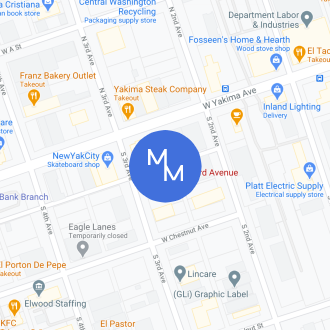If you have ever seen a television advertisement for a personal injury attorney, you have likely heard the term “negligence” used, but you may not fully understand what that means. At its most basic, it is a legal term used to refer to fault, or culpability. If you ever find yourself involved in a personal injury accident and believe that the other person, or entity, involved was responsible for your injuries, then you will likely need to prove that they were negligent in order to recover compensation for your injuries.
Personal injury accidents fall within the area of the law known as “torts.” Torts can be strict liability, intentional or negligent. The vast majority of torts, including personal injury accidents, fall into the category of negligence. Although entire law school textbooks have been written about the subject of negligence, it is not necessary to have a deep understanding of the term in order to understand what is required in order to prevail in a personal injury accident case.
Negligence requires that you, the victim, prove four elements — a duty of care, a breach of the duty of care, causation, and damages. The duty of care means that the defendant owed you a duty to take reasonable precautions under the circumstances in order to ensure that no harm came to you. In some personal injury accident scenarios, such as car accidents, the duty of care is well established. A driver of a vehicle on a public roadway owes a duty of care to other motorists. In other types of personal injury accidents, the duty of care is not as well established; however, the concept remains the same.
The second element, breach of the duty of care, is typically where the majority of litigation in personal injury accidents is found. Even where a duty is owed, true accidents can happen. In order for you to be entitled to compensation from the defendant, he or she must have breached the duty of care. Again, some breaches are more obvious than others. In a car accident case, things like speeding, texting while driving or drinking while driving are obvious breaches of the duty of care.
Causation simply means that the defendant’s breach of the duty of care actually caused your injuries. Many times this is clear; however, there are situations where it is not. For example, imagine that an airplane crashes and you are injured in the crash. Although it is later determined that the airline failed to perform required routine maintenance, which could be a breach of the duty of care, the actual cause of the crash was a lightning strike. In that case, the breach of the duty of care was not the direct cause of your injuries.
Finally, you must prove damages. “Damages” is the legal term used to describe injuries. Your injuries may be physical, psychological, emotional, or all of these; however, you will need to prove that the defendant’s actions, or inactions, resulted in your suffering damages of some kind.
Although this is a general overview of the law of negligence, how it is applied to an individual case will depend on the unique circumstances of the case. If you believe that you have been involved in a Yakima personal injury accident and the other person was negligent, contact the attorneys at Mariano Morales Law Firm at 509-457-1948 for a detailed evaluation of your potential case.


